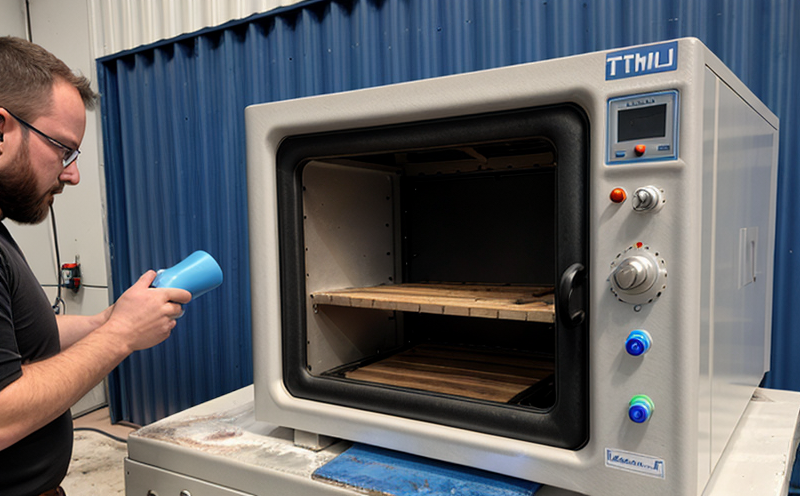Thermal Deformation Testing
The Critical Importance of Thermal Deformation Testing Unlocking Material Integrity for Businesses
In the world of materials science and engineering, understanding a materials behavior under various environmental conditions is crucial for ensuring product reliability and longevity. One such critical factor that can significantly impact a materials performance is temperature. Thermal deformation testing, a specialized laboratory service offered by Eurolab, helps businesses assess how their materials react to extreme temperatures, allowing them to make informed decisions about material selection, design optimization, and quality control.
What is Thermal Deformation Testing?
Thermal deformation testing involves subjecting a material to various thermal loads, such as heating or cooling, to evaluate its dimensional changes, mechanical properties, and microstructural transformations. This laboratory service simulates real-world conditions, enabling businesses to anticipate potential issues related to temperature fluctuations, thermal stresses, and thermal fatigue.
Why is Thermal Deformation Testing Essential for Businesses?
In todays competitive market, companies must ensure that their products meet rigorous standards of performance, safety, and quality. Thermal deformation testing plays a vital role in achieving these goals by
Minimizing Material Failures By understanding how materials behave under thermal stress, businesses can reduce the likelihood of material failures, which can lead to costly downtime, repairs, and reputation damage.
Optimizing Design and Development Thermal deformation testing enables designers to refine their designs, selecting materials that are better suited for specific applications and environmental conditions.
Enhancing Product Reliability By evaluating a materials thermal performance, businesses can increase product reliability, ensuring customer satisfaction and loyalty.
Improving Quality Control Thermal deformation testing helps companies establish robust quality control protocols, reducing the risk of defects and improving overall manufacturing efficiency.
Key Benefits of Thermal Deformation Testing
Eurolabs thermal deformation testing services offer numerous advantages to businesses. Some of the key benefits include
Accurate Material Selection By evaluating a materials thermal behavior, businesses can choose materials that meet specific application requirements, reducing the risk of premature failure.
Improved Design Optimization Thermal deformation testing enables designers to refine their designs, incorporating materials and geometries that minimize thermal stresses and maximize performance.
Enhanced Product Durability By understanding how materials respond to temperature fluctuations, companies can develop products with extended lifespans and reduced maintenance requirements.
Reduced Material Waste Thermal deformation testing helps businesses optimize material usage, minimizing waste and reducing environmental impact.
How Does Thermal Deformation Testing Work?
The thermal deformation testing process involves several key steps
Material Preparation Eurolabs experienced technicians prepare the test specimens, ensuring they meet specific size, shape, and surface finish requirements.
Thermal Loading The specimens are subjected to various thermal loads, including heating or cooling cycles, to evaluate their dimensional changes and mechanical properties.
Data Collection and Analysis Sophisticated data acquisition systems record the test results, which are then analyzed using advanced software to provide comprehensive insights into material behavior.
Frequently Asked Questions (FAQs)
Q What types of materials can be tested using thermal deformation testing?
A Eurolabs services cover a wide range of materials, including metals, polymers, ceramics, and composites.
Q How long does the thermal deformation testing process typically take?
A The duration of the test depends on various factors, including the material type, specimen size, and thermal loading conditions. Our team will work closely with you to determine the optimal testing schedule for your specific needs.
Q Can thermal deformation testing be used to evaluate material performance in specific applications?
A Yes! Eurolabs services are designed to simulate real-world conditions, enabling businesses to assess material performance under various environmental and operational conditions.
Q What kind of data can I expect from the thermal deformation testing process?
A Our team provides comprehensive reports detailing material behavior, including dimensional changes, mechanical properties, and microstructural transformations. This information is invaluable for informing design decisions, optimizing material selection, and ensuring product reliability.
Conclusion
In todays fast-paced business environment, staying ahead of the competition requires a deep understanding of material performance under various conditions. Eurolabs thermal deformation testing services empower businesses to unlock material integrity, making informed decisions about material selection, design optimization, and quality control. By leveraging our expertise and state-of-the-art facilities, companies can ensure product reliability, minimize material failures, and drive innovation forward. Contact us today to learn more about how Eurolab can help your business thrive in a competitive market.




